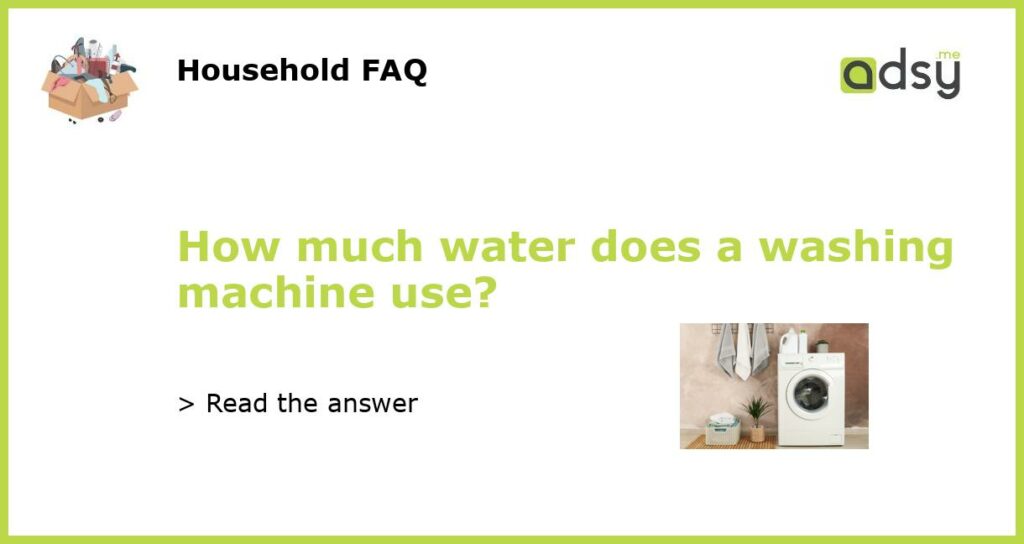How Much Water Does a Washing Machine Use?
When it comes to household appliances, washing machines are one of the highest water consumers. Many people are concerned about the amount of water these machines use and wonder if there are ways to reduce water consumption without compromising cleaning efficiency. In this article, we will explore why washing machines use so much water, how much water they typically consume, and tips for reducing water usage.
The Factors that Determine Water Consumption
There are several factors that contribute to the amount of water a washing machine uses. First and foremost, the size of the machine plays a significant role. Larger machines have higher water capacities and can therefore accommodate larger loads of laundry. This means they require more water to ensure that all the garments are properly soaked and cleaned.
The water level selected by the user also affects water consumption. Different wash cycles have different water requirements, and some cycles use more water than others. For example, a heavily soiled load may require a higher water level to properly clean the clothes, while a quick wash cycle may use less water but provide a less thorough cleaning.
Another factor to consider is the age and efficiency of the washing machine. Older models tend to use more water, as they may not be designed with the latest water-saving technologies. Energy Star rated washing machines are specifically designed to be more efficient, both in terms of water and energy consumption. If you are looking to reduce your water usage, consider investing in a newer, more eco-friendly model.
Typical Water Consumption of a Washing Machine
The exact amount of water a washing machine uses can vary depending on the factors mentioned above. On average, top-loading machines use around 30-40 gallons (113-151 liters) per load, while front-loading machines use about 20-25 gallons (76-95 liters) per load. Keep in mind that these numbers are just estimates and can vary depending on the specific make and model of your machine.
It’s important to note that water usage is not the only factor to consider when evaluating the efficiency of a washing machine. High efficiency machines may use less water, but they typically have longer wash cycles and utilize specialized detergent. These factors should be taken into account when comparing different machines.
Tips for Reducing Water Consumption
If you are concerned about your washing machine’s water usage and want to reduce it, here are some practical tips:
1. Opt for a front-loading machine: Front-loading machines are generally more water-efficient than top-loading machines, as they use gravity to tumble the clothes through a smaller amount of water.
2. Choose the appropriate load size: Avoid running partial loads and make sure to select the right load size for each wash cycle. Overloading the machine can lead to inefficient cleaning and wasted water.
3. Use appropriate water level settings: Many modern washing machines have customizable water level settings. Be mindful of the water level option you choose for each load, aiming to use the minimum amount required for effective cleaning.
4. Repair leaks promptly: If you notice any leaks in your washing machine, have them repaired as soon as possible. Leaks can cause excessive water usage and result in increased water bills.
5. Consider a high-efficiency model: Investing in a high-efficiency washing machine can significantly reduce water consumption in the long run. Look for machines with the Energy Star label, as they meet strict efficiency guidelines set by the U.S. Environmental Protection Agency.
While washing machines do consume a considerable amount of water, there are ways to reduce water usage without sacrificing cleanliness. By selecting the appropriate load size, water level settings, and investing in a high-efficiency machine, you can make a significant impact on your water consumption. Being mindful of how you use your washing machine and taking steps to conserve water can help protect this valuable resource for future generations.






